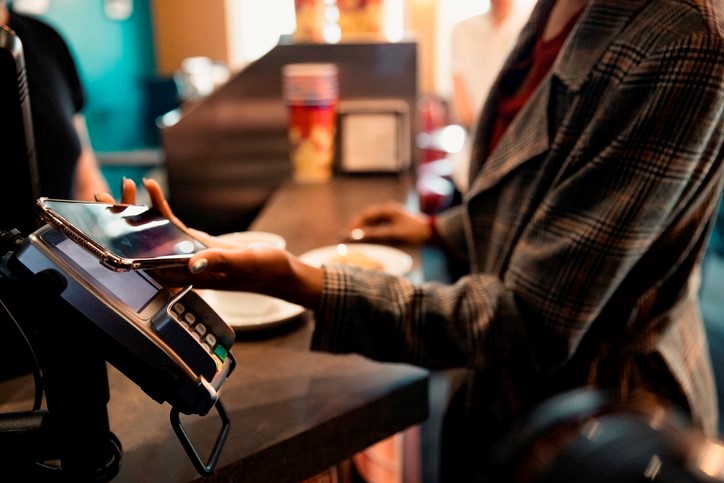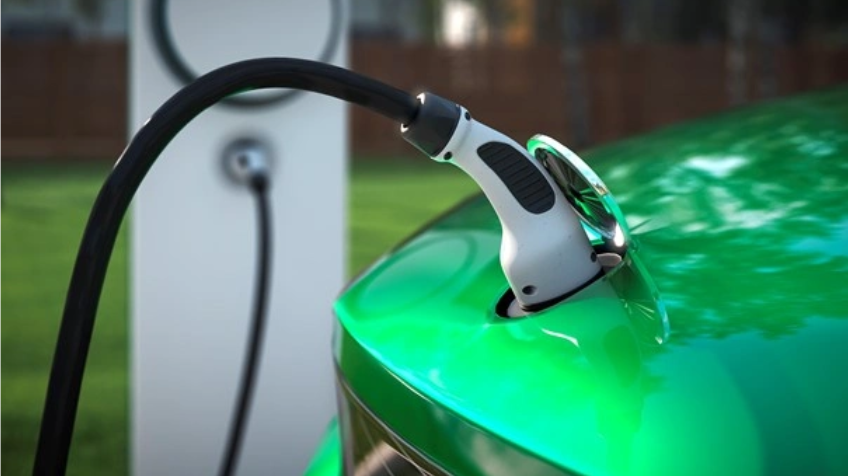Pros and cons of a cashless society
Written by
Wednesday 19th January 2022

The use of cash in everyday life has been in a steady decline over recent years and since the start of the pandemic, UK consumer have opted to use chip & pin, contactless and mobile payments instead.
According to new data released by UK Finance, during 2020, the volume of contactless payments made in the UK rose by 12% to 9.6 billion payments. Overall, contactless payments accounted for more than 27% of all UK payments – which is a 7% increase over the last four years.
UK Finance also noted that the change in payment habits have inadvertently left the country better prepared to cope with life under lockdown, with many businesses opting to encourage cashless spending to help prevent the spread of COVID.
High street banks have been playing their part by increasing the contactless limited from £30 to £45 per transaction in 2020 then increased again in 2021 to £100 to encourage consumers to make larger payments and in turn reducing contact in shops.
Here at Novuna Personal Finance, we’ve investigated the pros and cons for consumers, businesses, and society in general to if going cashless really is better.
Consumers
Pros:
Convenience – It’s easier to just tap your bank card or smartphone to make a payment, rather than fumbling around in your pocket for change.
It’s more secure – As the payment is between two devices (card/mobile and terminal), there is less chance of a traditional fraud being committed such as ‘skimming’.
Quick and efficient - It takes seconds to make a contactless payment in comparison to chip and pin or paying in cash.
Travelling light – As most places now accept contactless payments, this means you can leave the house with your phone and/or bank card without taking your whole wallet out with you.
No room for error – When you’re in a rush, it’s easy to forget your PIN or enter it incorrectly. Using contactless eliminates the chance of blocking your card as contactless payments are made using NFC
(Near Field Communication).
Simply put, it’s a way of transferring data from one chip to another e.g. A bank card to a card reader to make a payment.
Cons:
Not always an option– Not everywhere accepts contactless or mobile payments, so, this can be frustrating at times, especially when you forget your PIN or don’t have another form of payment available.
£100 limit – Even though banks have increased the contactless limit from £30 to £100 per transaction, you will be required to enter your pin number for larger purchases. However, if you’re using Apple Pay or Google Pay, there is no current limit.
Lost card – If you lose your card, there is a chance that whoever has picked it up may try and use it. Reassuringly, the maximum that can be spent is £100 per transaction. Also, many banks ask for a pin number after it has been used several times.
Important:
As soon as you realise you’ve lost your card; you should contact your bank immediately to flag it as lost and get it cancelled. Some mobile banking apps even allow you to freeze there and then to prevent any unauthorised spending.
Cyber fraud – Criminals are becoming more tech savvy so there is a risk of fraud via mobile payments. They can now steal your bank details through public Wi-Fi or money from your bank account by using software that can turn any mobile or tablet device into a scanner.
Low battery – If your mobile device is low on juice and you don’t have another form of payment, this can be
Businesses
Pros:
Super speedy service – Contactless and mobile payments help to get customers through the checkout process quickly and efficiently meaning more transactions can be taken compared to cash.
More hygienic – Decreasing the amount of contact between customer and employee with contactless and digital wallets reduces the risks of spreading COVID and other contagions.
Fewer fees – If customers use a payment wallet such as Apple Pay or Google Pay, the company isn’t charged a commission fee compared to a card payment.
Loyalty programmes – Companies can provide more offers or to their customers for using in-app payments which in turn encourages repeat business.
Cons:
A more reluctant older generation – They can sometimes be suspicious of digital payments and much prefer to stick with cash or chip and pin. Converting them to use contactless or mobile payments isn’t always possible, so companies must continue to offer different options.
Cost – Not all businesses are able to afford to update their whole payment systems to be compatible with contactless and mobile payments.
Losing custom – Even with the increased number of consumers opting to be cashless, there are still plenty of people who need to make cash payments. By not accepting cash, is could cause alienation them a loss of business.
System Crashes – All cashless systems are vulnerable to technical errors or unscheduled downtime which can cause major issues and loss of revenue if there is no back up payment option available e.g. cash payments.
Society
Pros:
Reduction in crime rates – As everything is online, there will be less cash in circulation which in theory should decrease physical financial crimes such as robberies and muggings.
Good for the economy – There are a few ways in which going completely cashless can be good for the economy, for example, minimising tax evasion and increased consumption of goods.
Cons:
Cyber-attacks – Even though physical crime rates will be reduced, there is still a security risk such as cyber-attacks and fraud. Criminals who can hack into your accounts could be able to take your details and cash which often lead to devastating financial losses.
Getting stranded – In situations such as power cuts or losing your phone can cause you to go without access to your cash for hours or even days which can cause some serious issues in an all-cashless society.
Top tips to stay safe:
Keep an eye on your bank statement to make sure everything is in order and there has been no fraudulent transaction made in your name.
Invest in a faraday bag to keep your bank cards safe from being scanned. This bag has a metallic lining which blocks the signal, so your details are safe.
Avoid public WIFI whenever possible as the connection isn’t secure. Sometimes your phone can accidentally connect so turn off the auto connect setting on your phone.
Always carry a bit of cash on you in case of emergencies – you never know when it might come in handy.
What does Novuna Personal Finance offer?
Here at Novuna, we offer our customers a range of personal loans to provide a helping hand with some of those bigger life purchases such as a new car, home improvements or to celebrate a special event. You can borrow between £1,000 and £35,000 with competitive rates from as low as 6.1% APR Representative (£7,500-£25,000).


